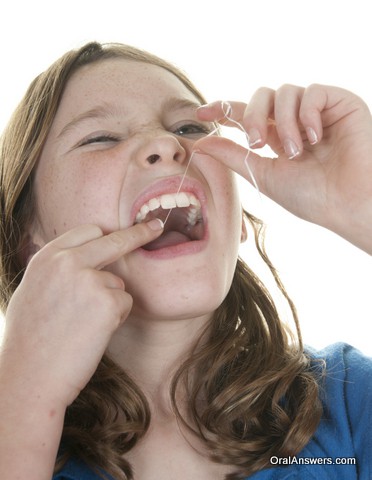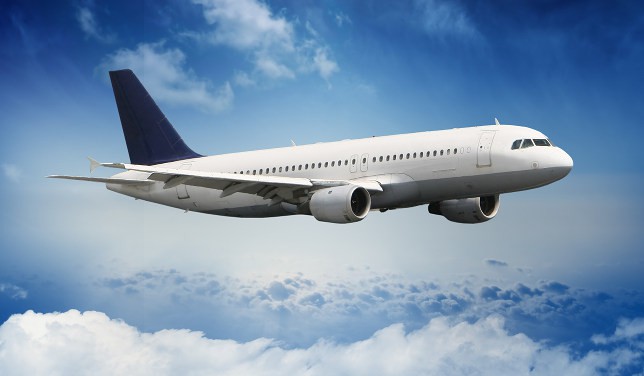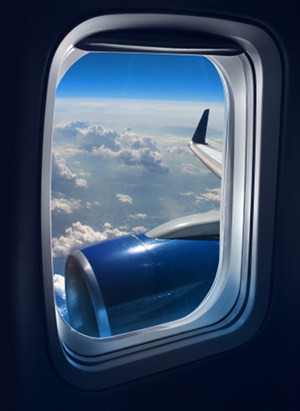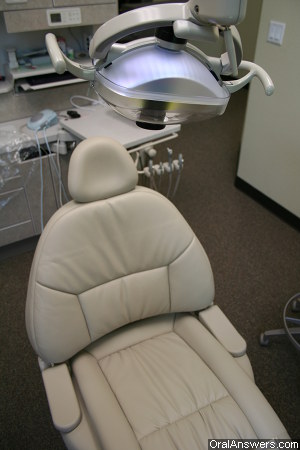Source: http://www.richmondsmilecenter.com/blog/2013/06/14/richmond-dentist-partial-dentures-2/
maxillofacial surgeon oral maxillofacial surgeon oral and maxillofacial surgeon dentistry oral surgery oral surgery dentistry
Source: http://www.richmondsmilecenter.com/blog/2013/06/14/richmond-dentist-partial-dentures-2/
maxillofacial surgeon oral maxillofacial surgeon oral and maxillofacial surgeon dentistry oral surgery oral surgery dentistry
dental implants surgery dental implants procedure tooth implant surgery oral surgery teeth dental surgery cost
cosmetic dental surgery maxillofacial surgeons dental surgeon dental surgeons oral dental surgeon
oral dentist surgery oral surgery dentist dentist oral surgery dental implant surgery mouth surgery
 | Have you ever wondered why we have two sets of teeth? At around 6 or 7 years old, our baby, or milk teeth, start to loosen and eventually fall out. This is a natural process and soon new teeth replace the ones that fall out. The baby teeth actually help in making sure that the “permanent” teeth erupt in their natural spot.Lower organisms on the evolutionary chain that have teeth can sometimes develop new teeth throughout their lifespan. The teeth of these species are usually designed for slashing, while the teeth of higher life forms are designed for chewing.Human baby teeth stimulate and guide the development of jawbones and permanent teeth. This means that even though the teeth are “temporary”, they are still important and should be taken care of. A theory exists indicating a child’s teeth would be too small for an adult mouth, hence the need for the smaller teeth to be replaced with larger teeth. There are normally only 20 baby teeth compared to 28-32 adult teeth. Gentle Dental recommends that you assist a child into developing good hygiene habits early. |
The post Why Do We Have Two Sets Of Teeth? appeared first on Gentle Dental.
oral maxillofacial surgeon oral and maxillofacial surgeon dentistry oral surgery oral surgery dentistry periodontics
Source: http://feedproxy.google.com/~r/BeautyFromAfar/~3/0GaNIJe9ZWw/
gum surgery maxillofacial jaw surgery wisdom tooth removal cost dentist dental implants dental solutions
denture implants dental bridges implant dentists dental problems tooth extraction cost
Source: http://worldental.org/free-dental/free-dental-treatments-day-hosted-needy/12774/
dental surgery dental clinic dentures dental implants what are dental implants
Source: http://feedproxy.google.com/~r/TheDentalImplantBlog/~3/bH8bWC0uJjs/

A recent survey by the American Dental Association found that just under half of all Americans floss their teeth daily.
What about the other half?
My guess is that they're the ones who floss twice a year — right before their dental checkups. They think they can pull a fast one on us, but here's a little secret: dentists can tell when you've been flossing and when you haven't.
The way we can tell if you're not flossing is if your gums are bleeding. Although there are other, less common conditions that can make your gums bleed, gingivitis is the main cause. Gingivitis is when the gums are inflamed due to all of the bacteria in your mouth collecting right between the gums and the teeth.
The problem is that it takes about a week of daily flossing for gingivitis to go away and make it so your gums don't bleed when they are cleaned.
The most authoritative book on the gums — that's 1,328 pages dedicated to your gums! — states the following:
The presence of plaque for only 2 days can initiate gingival bleeding on probing, whereas once established, it may take 7 days or more after continued plaque control and treatment to eliminate gingival bleeding.
So, if you end up brushing and flossing really well right before your dental cleaning and exam, your teeth will be clean, but your gums will still show the main sign of inflammation: bleeding.
If you really want to trick your dentist into thinking you're brushing and flossing regularly, you'll have to do it for at least seven days before your visit. And if you're gonna do that, why not simply brush and floss every day?
Image © Cheryl Casey/Shutterstock.comRelated posts:
Source: http://feedproxy.google.com/~r/OralAnswers/~3/60zaPP0OTF8/
dentures dental implants what are dental implants implants dental dental services
Source: http://www.richmondsmilecenter.com/blog/2013/06/10/richmond-dentist-senior-dentistry/
dentures implants dental extractions implant dentures gum surgery maxillofacial jaw surgery
Update 4/2/2012: Happy April Fools Day 2012 — Unfortunately, in-flight dentistry hasn't quite taken off yet!
Don't be surprised if during your next visit to the friendly skies you hear the faint whine of the dental drill. Two major airlines are poised to announce the addition of the DentAir program to their flight services. The program has been in its trial stage since January 1, 2012 and has met with such success that it is now being expanded throughout both airlines. After years of cost-cutting, many airlines are trying to woo back disgruntled fliers by offering extra in-flight services that cater to their frequent travelers.
I hate to be a naysayer, but I did have my doubts when I first heard about this program. I mean, dentistry in the air? But after discussing the idea with both patients and other dentists, I have to admit that being an aerodentist is actually something I could see myself doing after I graduate from dental school.

The program is currently offered on about 5% of domestic flights, as well as several international destinations. Patients can requests services while checking in online up to 24 hours in advance or they can request an appointment once they get to their gate. A full range of services are offered, including routine cleaning and exams, custom whitening trays, and restorations.
We all know how difficult it is to fit dental check-ups into our busy schedules nowadays. But with the addition of the DentAir program, people can fly where they need to — and get an exam on the way.
Kerri Zrisk, creator of the DentAir concept, explains, "Whether you are a business traveler or a retired couple vacationing around the world, you probably struggle to find the time to get to your dentist. With this program, the dentist comes to you. We realized that passengers already had time slots open in their schedules — the only problem was that they were flying on airplanes during these lulls in their day. So we started thinking, 'How can we get the dentists to these people?' The DentAir program naturally followed."

Phil Mitewth, DentAir Conniseur
Many patients expressed relief that they had access to dental professionals while traveling. After all, dental emergencies rarely occur at convenient times. Phil Mitewth, director of sales for Mardott International, said, "As a busy executive, I simply don't have time to go to the dentist. With my busy schedule of flights, it's easy to get my dental work done - and I have to say that there's nothing quite as exhilarating as having a root canal over the Panama Canal."
Passenger Joseph Miller was equally excited. "I couldn't wait to get caps on my badly-stained two front teeth. Getting it done in the air was awesome and I would even say it was the crowning moment of my whole vacation!"

View from DentAir Dental Chair
New York Dentist Dr. Mo Lerr, DDS stated, "Many patients are flying down to Mexico to get their dental work done at a fraction of the cost. By being an airplane dentist, I have some time to persuade them to get their dental work done in-country. I can even offer cheaper prices since there are no taxes in the friendly skies!"
Dr. Daryl B. Payne says, "A lot of my colleagues were skeptical at first, but I will always remember doing my first 'mile-high' filling. I just revved up the drill and waited. As an aerodentist, I've learned to just hold the drill in the mouth and let the turbulence guide me to the decay. It works every time, and I've never had a patient leave."
Most dentists that were interviewed said they feel like an integral part of the flight team, despite their unique role. Dr. Timothy DeKay chimed in, "Everything has gone fairly smoothly so far. One time the pilot did tell me to lay off the suction since it was decreasing cabin pressure, but other than that we've had a pretty good working relationship."

Meredith Russell, Stewardentess
Aerodentistry, like traditional dentistry, requires specially-trained support staff. After a recent flight, I was able to meet up with long-time Delta stewardess Meredith Russell. She returned to school last year to get her dental assisting degree and has recently been certified the first stewardentess in the nation.
In our interview she mused, "Sometimes it gets really boring during the downtime after I've collected the empty drink cups and pretzel bags. I felt like there was something I was missing out on as a stewardess and I wanted more out of my career. In-flight dental assisting was just a natural extension of my duty to make everyone's flight perfect."
Whether aerodentistry will really take off remains to be seen. But one thing is clear: dentists are branching out and considering unconventional treatment venues. It could be the recent economic recession or just a shift away from traditional care models, but whatever the reason, dentistry is expanding to reach more people.
"It's hard to say what the next 5 or 10 years will bring, " says Dave Capitt, dean of Michigan State School of Dentistry, "but if you ask me, the future of dentistry is up in the air."
Related posts:
Source: http://feedproxy.google.com/~r/OralAnswers/~3/5UdqJyPybFc/
jaw surgery implant dentist dentist implant teeth surgery tooth implant cost
Source: http://www.richmondsmilecenter.com/blog/2013/06/14/richmond-dentist-partial-dentures-2/
Source: http://worldental.org/free-dental/free-dental-clinic-served-hundreds/12761/
dental surgeon dental surgeons oral dental surgeon dental oral surgeon facial surgery
mini implants tooth replacement dentures implants dental extractions implant dentures

It's been estimated that half of all Americans don't go to the dentist regularly. If you find yourself in that half, how about making a New Year's resolution to make it to the dentist this year?
Here are five good reasons why you should.
If you regularly visit the dentist, your dentist will be able to tell you about smaller problems that you can easily and inexpensively get fixed. The quicker you get a cavity filled, for example, the longer the filling will last. If you put off getting a cavity filled while it's small, it could cost significantly more to get it fixed when it needs a root canal and crown a few years down the road.
You won't feel any symptoms with most dental problems until they are advanced. If you have gum disease, it's important that you get it treated. However, unless you develop a gum abscess or have gum disease that is at a very advanced stage, you likely won't experience any pain.
If you had a bad experience in the past, let me assure you that dentistry has come a long way. There have been many recent advancements in the kinds of materials that we can use to fix your teeth. Many modern restorations such as crowns and veneers look completely natural and can give you the kind of smile you've always wanted.
There are many drugs that you can take before you go to the dentist to make you drowsy so that you will be less anxious during your procedure.
Also, if needles frighten you, many dentists can fill small cavities using a laser without any anesthetic. If you do require an anesthetic, there are very strong topical gels that can be placed on your gums before the injection to make the injection nearly painless.
We've come a long way since the dark ages when dentists were a little crazy — check out these pictures of old school dentistry if you don't believe me.
Many dentists are running new patient specials due to the fragile state of the economy. They figure it's better to get a new patient in even if they charge a really low price than to have empty slots.
If you perform an internet search with the terms "dentist the name of your city", you will likely find some good deals that will allow you to have a free or low-cost exam and x-rays to get an overall idea of your general dental health.
Also due to the economy, some dental offices are willing to accept payments for dental work performed rather than requiring the full amount at the time of service.
Another excellent option that we offer at my practice is called Care Credit. This allows patients to have the dental work performed and then make 12 equal, monthly payments over the course of the year without paying any interest. If you do go this route, just make sure that you make all of your payments on time. If you don't pay on time, then they will charge interest, which is how they make a lot of their money.
If you've made it this far, go ahead and make that appointment! If you're hesitant to make a dental appointment, feel free to leave a comment below and let me know why. I'll try to get back to you and resolve any concerns you might have.
Have a great year!
Photo ©ksb/shutterstock.comRelated posts:
Source: http://feedproxy.google.com/~r/OralAnswers/~3/Z4-nP1bdv4c/
dental surgeons oral dental surgeon dental oral surgeon facial surgery dental oral surgeons
dental clinic dentures dental implants what are dental implants implants dental
Source: http://www.omfdental.com/blog/2013/wedding/?utm_source=rss&utm_medium=rss&utm_campaign=wedding
facial surgery dental oral surgeons maxillofacial surgeon oral maxillofacial surgeon oral and maxillofacial surgeon
dental implant oral surgeon tooth extraction implant dentistry dental treatment
tooth extraction implant dentistry dental treatment oral surgeons oral surgeons in
implants dental dental services implant dental dental implant oral surgeon
 A new study has shown that people who drink more than four cups of coffee a day may have half the risk of dying from oral/pharngeal (mouth and throat) cancer. This is as opposed to people who either drink it occasionally or not at all. The researchers are quick to add the fact that their findings need more study and that people should not use this study to increase their coffee consumption.
A new study has shown that people who drink more than four cups of coffee a day may have half the risk of dying from oral/pharngeal (mouth and throat) cancer. This is as opposed to people who either drink it occasionally or not at all. The researchers are quick to add the fact that their findings need more study and that people should not use this study to increase their coffee consumption.
The research suggests that it may not be the caffeine in the coffee, but the fact that coffee is rich in polyphenols, antioxidants and other compounds that all assist in preventing or slowing the development of cancer.
The post Risk of Mouth And Throat Cancer May Be Halved By Coffee Drinking appeared first on Gentle Dental.
dental surgeons oral dental surgeon dental oral surgeon facial surgery dental oral surgeons
Source: http://feedproxy.google.com/~r/BeautyFromAfar/~3/XZnU3xWRGdY/
implants teeth teeth implants implant teeth teeth implant cosmetic dental surgery
maxillofacial jaw surgery wisdom tooth removal cost dentist dental implants dental solutions oral dentist surgery
Source: http://worldental.org/teeth/free-dental-care-possible/12737/
oral implants dental crown oral tooth surgery sedation dentistry crown tooth
implants dentist teeth implants cost dental works denture implants dental bridges
Source: http://worldental.org/oral-hygiene/important-tongue-healthcare-tips/12733/
wisdom tooth removal cost dentist dental implants dental solutions oral dentist surgery oral surgery dentist
tooth implant cost tooth implants cost dental extraction dentist implants implants dentist
dental works denture implants dental bridges implant dentists dental problems
Source: http://worldental.org/free-dental/volunteer-dentists-offer-free-dental-services/12711/
tooth implants cost dental extraction dentist implants implants dentist teeth implants cost
Source: http://www.richmondsmilecenter.com/blog/2013/06/21/richmond-dentist-faq-tooth-replacement/
periodontics oral implants dental crown oral tooth surgery sedation dentistry
For three years now, Democrats have implored states to develop health insurance exchanges, while Republicans have tried equally hard to block them. They will soon open, but in 33 states without their own, people will be served by a federal exchange.
The post Sunday Dialogue: Blocking Health Reform appeared first on 247HealthNews.
Source: http://247healthnews.net/sunday-dialogue-blocking-health-reform/
oral tooth surgery sedation dentistry crown tooth dental bridge jaw surgery
Source: http://feedproxy.google.com/~r/TheDentalImplantBlog/~3/NWITlOwpTeA/
teeth extraction maxillofacial oral surgery dental oral dental surgery dental oral surgery